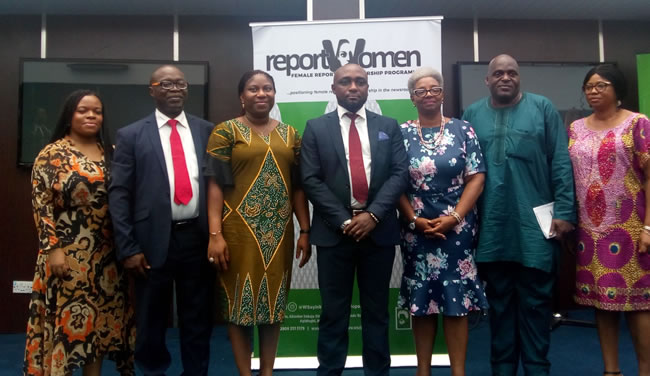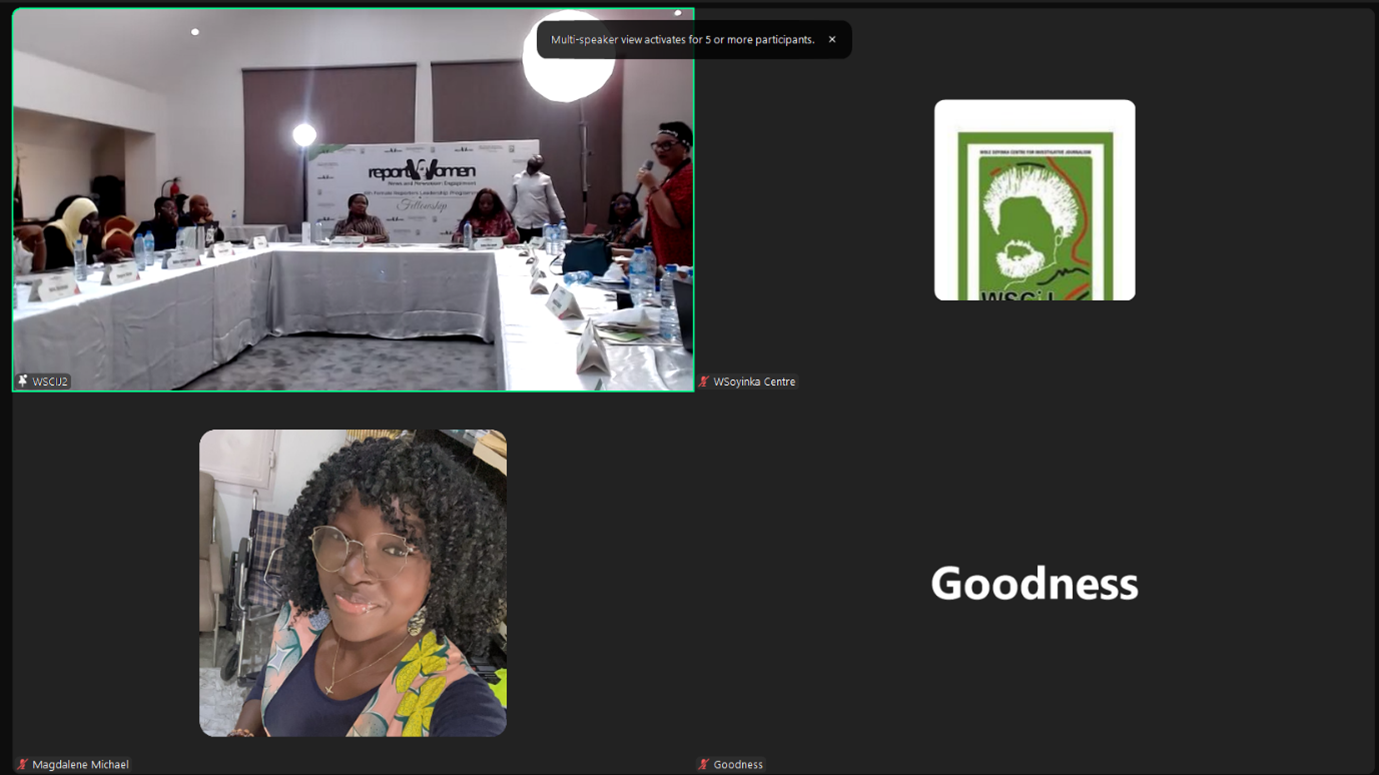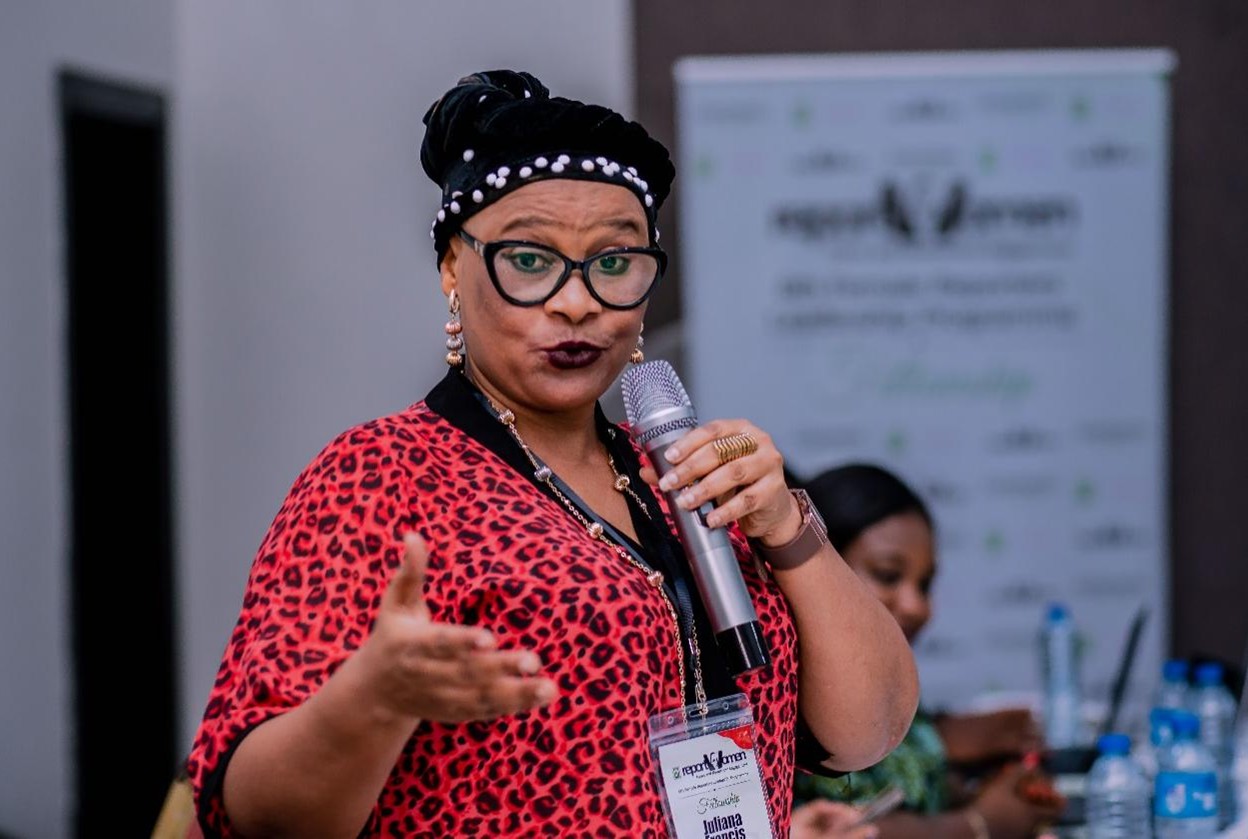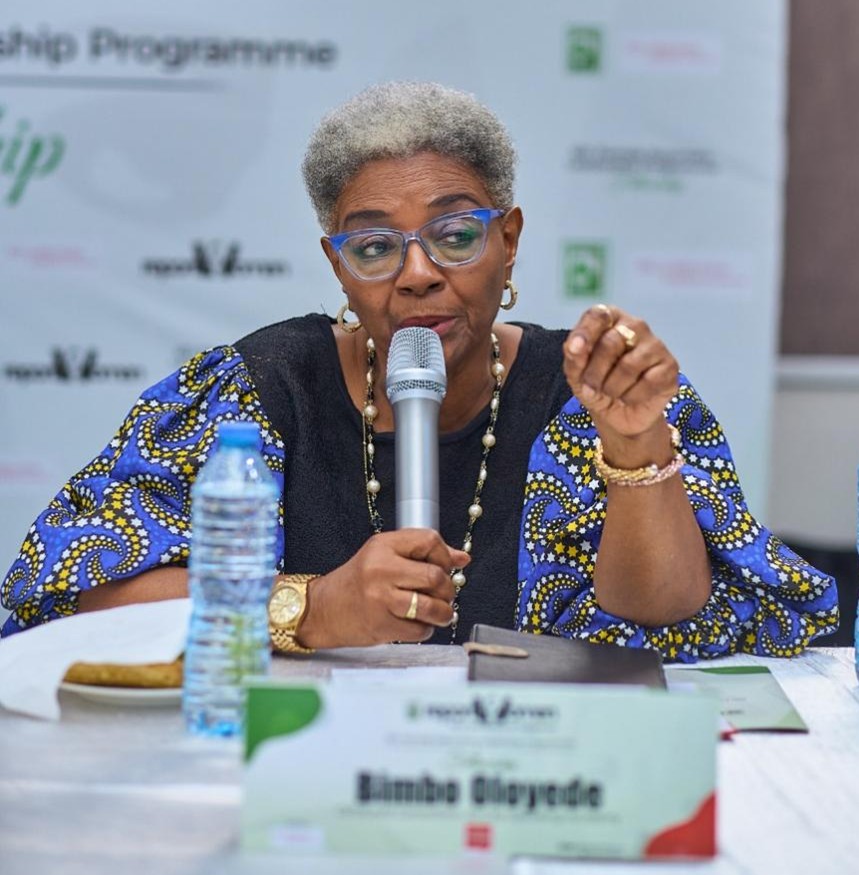Experts have urged media managers to create an enabling environment for women in the newsroom. The call was made at the last leg of the house-to-house visit by the Wole Soyinka Centre for Investigative Journalism (WSCIJ) to select media houses in Lagos.
The visit which took place as a chat on gender policy and practices with members of staff, including top management and head of desks of media houses between Monday 15th and Wednesday 17th April, was made to BusinessDay Newspaper, New Telegraph Newspaper and Sahara Reporters.
Tagged, ‘House to House Media Chat on Gender Policy and Practice’, the visit was organised to engage the management and members of staff on the need and urgency for encouraging gender parity in the newsrooms.
WSCIJ had visited six media houses including the Lagos offices of Voice of Nigeria (VON) and Federal Radio Corporation of Nigeria (FRCN), and the Abuja offices of News Agency of Nigeria (NAN), Leadership Newspaper, Daily Trust Newspaper and Premium Times between 4 and 12 April.
Presenting the report of the survey of 15 newsroomsthe WSCIJ had conducted on the policy and practice of gender mainstreaming in the newsroom, Motunrayo Alaka, WSCIJ Coordinator, noted that many of the media houses do not have well-defined policy addressing gender issues in their newsrooms.
Speaking as a resource person, Bimbo Oloyede, Veteran Broadcaster and CEO, Strictly Speaking, opined that a framework should be put in place to ensure that more women are allowed to occupy the ‘C Suite’ leadership and management positions.
“For every male expert, there is also a female expert waiting to offer a professional advice. The society is nearly 50/50, and we can’t ignore half the society. Media as the watchdog should watch the dogs,” she said.
Omobola Akingbehin, a resource person and Senior Editor at News Agency of Nigeria, opined that female journalists should be adequately engaged to bring about gender parity in the newsroom. She urged women at the helms of affairs to efforts to pull others up.
She said, “If you don’t give them responsibilities, if you don’t send them to the field, if you don’t send them out, how do you feel them?”
In reaction to the various perspectives, some of the participants said that affirmative action and the quota system of putting women in leadership positions in the newsroom should be discouraged to not give room for the feeling of entitlement and mediocrity among female reporters.
However, Rotimi Sankore, a resource person and Editorial Management Consultant, Nigeria Info, argued that removing the social limitationsset for women will help the media do better.
He said, “An imaginary line has been drawn for women; there are social limitations.So, there has to be more open encouragement. The enabling environment is the encouragement, some are bold enough to step above the lines, but some will have to be encouraged to step above the lines.”
In his reaction, Patrick Atuanya, Editor, BusinessDay, maintained that the competenceof the reporters is critical regardless of their gender. He said, “Professionally, everybody is equal. There is no favourite based on gender.If you know your work, you get rewarded.” qualification
On her part, Funke Egbemode, Managing Director, New Telegraph, said that the reason for the obvious fallout and marginalisation of females in the profession, is not the men they work with, but the men in their lives; and that the women also stay glued to their comfort zones, by covering the easy beats like fashion and lifestyle.
Ayodele Ojo, Daily Editor, New Telegraph, notedthatthe media organisation has a policy in place for optimum utilisation of interns, and that they would encourage women in the newsroom. He assured the WSCIJ team that New Telegraph would be more gender sensitive in its content.
Speaking for Fisayo Soyombo,the Managing Editor of Sahara Reporters, Seun Akinfolarin, Director, Civic Media Lab, encouraged the reporters to consciously develop a bias for women’s rights and issues, because of the voiceless girls who need a voice. He said Sahara Reporters would try to quantify the numbers in their stories to drive the realities.
He further noted that Sahara Reporters always seek to hire ladies, particularly with the Executive Director being a lady.He added that Sahara Reporters would do better in terms of giving more opportunities to female journalists.








